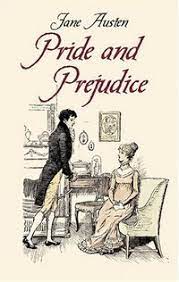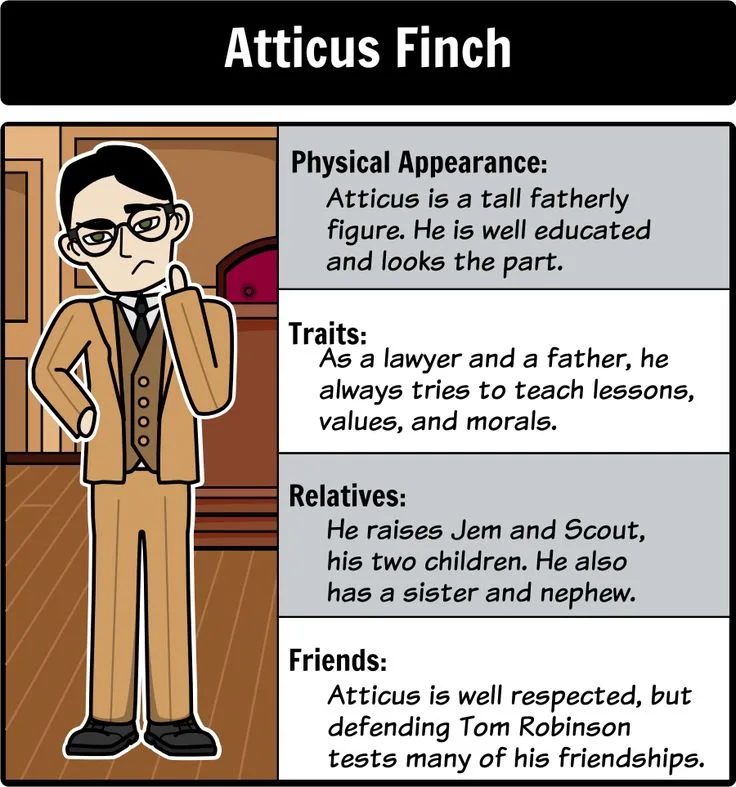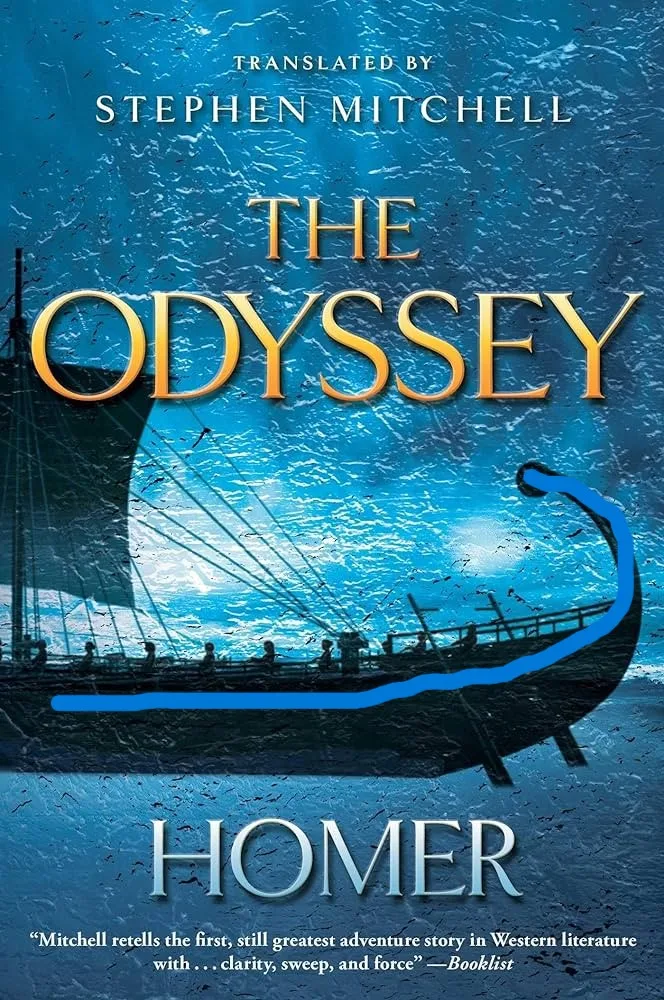In the vast expanse of literary history, certain characters have transcended the confines of the page, etching their way into the collective consciousness of readers worldwide. These iconic figures, born from the pens of master storytellers, possess an enduring appeal that continues to captivate and inspire generations.
As we delve into the realm of the most iconic literary characters, we must first understand what it is that sets them apart. What are the qualities, traits, and narrative arcs that transform a well-written protagonist into a timeless, unforgettable icon? Through an in-depth exploration of 10 of the most renowned characters in literature, we will uncover the common threads that bind them together and the unique elements that make each one truly special.
Get an Overview of the Characters
Here’s a table and a graph that illustrate some key aspects of the unforgettable iconic characters:
| Character | Iconic Traits |
|---|---|
| Sherlock Holmes | Exceptional deductive reasoning, eccentric personality, complex relationship with Dr. Watson |
| Elizabeth Bennet | Strong-willed, intelligent, challenges societal norms, undergoes self-discovery |
| Harry Potter | Humble protagonist, courageous, loyal to friends, undergoes transformative journey |
| Atticus Finch | Commitment to justice, moral integrity, principled leadership, devoted father figure |
| Jay Gatsby | Enigmatic protagonist, pursuit of American Dream, doomed love, embodiment of 1920s excess |
| Holden Caulfield | Cynical worldview, rejection of phoniness, search for authenticity, articulation of adolescent angst |
| Scout Finch | Child’s perspective, sense of justice, loyalty to family, ability to navigate flawed society |
| Hamlet | Brooding protagonist, grappling with revenge and existential questions, descent into madness |
| Odysseus | Cunning hero, resilience, battles against mythical creatures, embodiment of human spirit |
| Katniss Everdeen | Fierce protagonist, commitment to protecting loved ones, reluctant symbol of resistance |
Iconic Character Archetypes:

1. Sherlock Holmes (from the works of Sir Arthur Conan Doyle)
Arguably the most famous detective in literary history, Sherlock Holmes has captivated readers since his first appearance in Sir Arthur Conan Doyle’s 1887 novel, “A Study in Scarlet.” The brilliant, eccentric sleuth, with his unparalleled deductive reasoning and keen observational skills, has become the archetype for countless fictional investigators that have followed in his footsteps.What makes Sherlock Holmes such an iconic character is his unwavering dedication to the pursuit of truth, his unapologetic eccentricities, and his complex relationship with his loyal companion, Dr. John Watson. Holmes’ ability to solve the most perplexing mysteries through sheer intellect and logical reasoning has cemented his status as a literary legend, inspiring countless adaptations and reimaginings across various media.

Iconic Traits:
- Exceptional deductive reasoning and observational skills
- Eccentric personality and unconventional methods
- Unwavering commitment to justice and the truth
- Complex relationship with his loyal friend, Dr. Watson
Why He Endures:
Sherlock Holmes’ enduring popularity can be attributed to his timeless appeal as a brilliant, flawed, and deeply human character. His unique approach to problem-solving, combined with his quirky mannerisms and emotional detachment, have made him a captivating figure that continues to captivate readers and viewers alike.
2. Elizabeth Bennet (from “Pride and Prejudice” by Jane Austen)
In the pantheon of iconic literary heroines, Elizabeth Bennet stands tall as one of the most beloved and influential characters ever created. Introduced in Jane Austen’s masterpiece, “Pride and Prejudice,” Elizabeth’s wit, intelligence, and unwavering sense of self have made her a beloved figure for generations of readers.
Elizabeth’s strength of character, her refusal to conform to societal expectations, and her ability to challenge the prejudices of those around her have all contributed to her enduring appeal. Her journey of self-discovery, as she navigates the complexities of love and class in Regency-era England, has resonated with readers across time and culture.

Iconic Traits:
- Strong-willed and independent-minded
- Intelligent and quick-witted
- Challenges societal norms and prejudices
- Undergoes a transformative journey of self-discovery
Why She Endures:
Elizabeth Bennet’s enduring popularity can be attributed to her status as a pioneering literary heroine who defied the expectations of her time. Her unwavering spirit, combined with Austen’s masterful storytelling, have made her a timeless icon of female empowerment and the pursuit of true love.
3. Harry Potter (from the “Harry Potter” series by J.K. Rowling)
In the modern literary landscape, few characters have captured the imagination of readers worldwide as profoundly as Harry Potter. The young wizard, introduced in J.K. Rowling’s beloved fantasy series, has become a cultural phenomenon, inspiring countless adaptations, spin-offs, and a devoted global fanbase.
What makes Harry Potter such an iconic character is his relatable journey of self-discovery, his unwavering courage in the face of adversity, and his unwavering loyalty to his friends and allies. Harry’s struggles with his identity, his battles against the forces of darkness, and his ultimate triumph over the forces of evil have resonated with readers of all ages, making him a true hero for the modern era.

Iconic Traits:
- Humble and relatable protagonist
- Courageous and determined in the face of adversity
- Loyal to his friends and allies
- Undergoes a transformative journey of self-discovery
Why He Endures:
Harry Potter’s enduring popularity can be attributed to his status as a modern-day literary hero, one who embodies the universal themes of good versus evil, the power of friendship, and the triumph of the human spirit. His journey has captivated readers worldwide, solidifying his place as one of the most iconic characters in contemporary literature.
4. Atticus Finch (from “To Kill a Mockingbird” by Harper Lee)
In the pantheon of literary heroes, few stand as tall and as revered as Atticus Finch, the principled lawyer at the heart of Harper Lee’s classic novel, “To Kill a Mockingbird.” Atticus’ unwavering commitment to justice, his moral integrity, and his role as a father figure to his children, Scout and Jem, have made him an enduring symbol of moral courage and ethical leadership.
Atticus’ willingness to stand up for the rights of a wrongly accused black man in the face of overwhelming prejudice and racism has cemented his status as a literary icon. His ability to impart valuable life lessons to his children, while navigating the complexities of a deeply flawed society, has resonated with readers across generations.

Iconic Traits:
- Unwavering commitment to justice and moral integrity
- Principled and ethical leadership
- Devoted father figure who imparts valuable life lessons
- Stands up for the rights of the marginalized in the face of adversity
Why He Endures:
Atticus Finch’s enduring popularity can be attributed to his status as a moral exemplar, a character who embodies the values of justice, compassion, and the pursuit of truth. His timeless appeal lies in his ability to inspire readers to confront their own biases and to strive for a more equitable and just society.
5. Katniss Everdeen (from “The Hunger Games” series by Suzanne Collins)

In the pantheon of contemporary iconic literary characters, few have captured the imagination of readers as profoundly as Katniss Everdeen, the fierce and resilient protagonist of Suzanne Collins’ “The Hunger Games” series.
Katniss’ journey of survival, her unwavering commitment to protecting her loved ones, and her role as a reluctant symbol of resistance against a tyrannical regime have made her a beloved and enduring figure in the literary landscape.

Iconic Traits:
- Fierce and resilient protagonist
- Unwavering commitment to protecting her loved ones
- Reluctant symbol of resistance against a tyrannical regime
- Embodiment of the universal themes of courage, sacrifice, and the power of the human spirit
Why She Endures:
Katniss Everdeen’s enduring popularity can be attributed to her status as a contemporary literary icon who embodies the universal struggles and triumphs of the human experience. Her journey of survival, her transformation into a symbol of resistance, and her embodiment of the values of courage, sacrifice, and the power of the human spirit have made her a beloved and enduring figure in the literary canon.
6. Jay Gatsby (from “The Great Gatsby” by F. Scott Fitzgerald)
In the pantheon of iconic literary characters, few have captured the imagination of readers as profoundly as Jay Gatsby, the enigmatic and elusive protagonist of F. Scott Fitzgerald’s masterpiece, “The Great Gatsby.” Gatsby’s pursuit of the American Dream, his lavish displays of wealth, and his doomed love for Daisy Buchanan have made him a symbol of the excesses and disillusionment of the Roaring Twenties.
What makes Gatsby such an iconic character is his ability to embody the complexities of the human experience – the pursuit of love, the quest for social status, and the ultimate futility of material wealth in the face of the human condition. Gatsby’s tragic arc, as he is ultimately undone by his own illusions and the harsh realities of a society that values appearance over substance, has made him a enduring figure in the American literary canon.

Iconic Traits:
- Enigmatic and elusive protagonist
- Pursuit of the American Dream and social status
- Doomed love for Daisy Buchanan
- Embodiment of the excesses and disillusionment of the Roaring Twenties
Why He Endures:
Jay Gatsby’s enduring popularity can be attributed to his status as a complex and multifaceted character who serves as a metaphor for the human condition. His tragic arc, combined with Fitzgerald’s masterful prose and the novel’s exploration of themes of wealth, class, and the pursuit of the American Dream, have cemented Gatsby’s place as one of the most iconic characters in American literature.
7. Hamlet (from “Hamlet” by William Shakespeare)
In the pantheon of iconic literary characters, few stand as tall and as revered as Hamlet, the brooding and introspective prince at the heart of William Shakespeare’s masterpiece. Hamlet’s struggle with the complexities of revenge, his grappling with existential questions, and his ultimate descent into madness have made him a enduring figure in the literary landscape.
What makes Hamlet such an iconic character is his ability to embody the universal human experience – the search for meaning, the struggle with moral dilemmas, and the ultimate futility of the human condition. Hamlet’s soliloquies, in which he grapples with the nature of existence and the weight of his own actions, have become some of the most famous and oft-quoted passages in all of literature.

Iconic Traits:
- Brooding and introspective protagonist
- Grappling with the complexities of revenge and moral dilemmas
- Descent into madness and the exploration of the human condition
- Iconic soliloquies that capture the universal human experience
Why He Endures:
Hamlet’s enduring popularity can be attributed to his status as a timeless representation of the human experience. His ability to articulate the universal struggles of the human condition, combined with Shakespeare’s masterful storytelling and the depth of his character, have made Hamlet a beloved and iconic figure in the literary canon.
8. Holden Caulfield (from “The Catcher in the Rye” by J.D. Salinger)
In the annals of literary history, few characters have captured the angst and disillusionment of youth as profoundly as Holden Caulfield, the protagonist of J.D. Salinger’s seminal novel, “The Catcher in the Rye.” Holden’s cynical worldview, his rejection of phoniness, and his search for authenticity have made him a touchstone for generations of readers who have grappled with the complexities of growing up.
What makes Holden Caulfield such an iconic character is his ability to articulate the universal feelings of alienation, loneliness, and the desire to protect the innocence of childhood in the face of a corrupt and hypocritical adult world. Holden’s raw, unfiltered voice and his refusal to conform to societal expectations have made him a beloved and relatable figure for readers across generations.

Iconic Traits:
- Cynical and disillusioned worldview
- Rejection of phoniness and inauthenticity
- Search for authenticity and the preservation of childhood innocence
- Articulation of universal feelings of alienation and loneliness
Why He Endures:
Holden Caulfield’s enduring popularity can be attributed to his status as a timeless representation of the adolescent experience. His ability to capture the universal struggles of growing up, combined with Salinger’s masterful storytelling, have made Holden a beloved and iconic character in the literary canon.
9. Scout Finch (from “To Kill a Mockingbird” by Harper Lee)
In the pantheon of iconic literary characters, few have captured the imagination of readers as profoundly as Scout Finch, the young protagonist of Harper Lee’s classic novel, “To Kill a Mockingbird.” Scout’s coming-of-age journey, her unwavering sense of justice, and her ability to navigate the complexities of a deeply flawed society have made her a beloved and enduring figure in the literary landscape.
What sets Scout apart as an iconic character is her unique perspective as a child navigating the adult world. Her innocent yet insightful observations, her fierce loyalty to her family, and her willingness to challenge the status quo have made her a symbol of resilience, empathy, and the power of moral courage.

Iconic Traits:
- Unique child’s perspective on the adult world
- Unwavering sense of justice and moral courage
- Fierce loyalty to her family and community
- Ability to navigate the complexities of a deeply flawed society
Why She Endures:
Scout Finch’s enduring popularity can be attributed to her status as a timeless representation of the human experience. Her journey of self-discovery, her ability to challenge societal norms, and her embodiment of the values of justice, empathy, and moral courage have made her a beloved and iconic character in the literary canon.
10. Odysseus (from “The Odyssey” by Homer)
In the pantheon of iconic literary characters, few stand as tall and as revered as Odysseus, the cunning and resourceful hero at the heart of Homer’s epic poem, “The Odyssey.” Odysseus’ journey of homecoming, his battles against mythical creatures and the wrath of the gods, and his ultimate triumph over adversity have made him a enduring figure in the literary landscape.
What makes Odysseus such an iconic character is his embodiment of the human spirit – his resilience, his ingenuity, and his unwavering determination to return to his beloved home and family. Odysseus’ journey, filled with challenges, temptations, and the ever-present threat of danger, has become a timeless metaphor for the human experience, inspiring countless adaptations and retellings across various media.

Iconic Traits:
- Cunning and resourceful hero
- Resilience and unwavering determination
- Battles against mythical creatures and the wrath of the gods
- Embodiment of the human spirit and the journey of homecoming
Why He Endures:
Odysseus’ enduring popularity can be attributed to his status as a timeless representation of the human experience. His journey, filled with challenges, temptations, and the ever-present threat of danger, has become a metaphor for the universal struggles and triumphs of the human condition, making him a beloved and iconic figure in the literary canon.
Conclusion:
The characters that have become icons in the literary landscape are those that have transcended the confines of the page, capturing the imagination of readers worldwide and becoming indelible parts of our cultural consciousness. Whether it’s the brilliant and eccentric Sherlock Holmes, the fierce and independent Elizabeth Bennet, or the resilient and courageous Katniss Everdeen, these characters possess a unique blend of qualities that make them unforgettable.
What unites these iconic characters is their ability to embody the universal human experience – the pursuit of justice, the struggle with moral dilemmas, the search for authenticity, and the triumph of the human spirit in the face of adversity. These characters have become timeless representations of the human condition, inspiring readers to confront their own biases, to strive for a more just and equitable society, and to find meaning and purpose in their own lives. As we continue to explore the rich tapestry of literary history, it is these iconic characters that will continue to captivate and inspire us, reminding us of the power of storytelling to shape our understanding of the world and our place within it.
